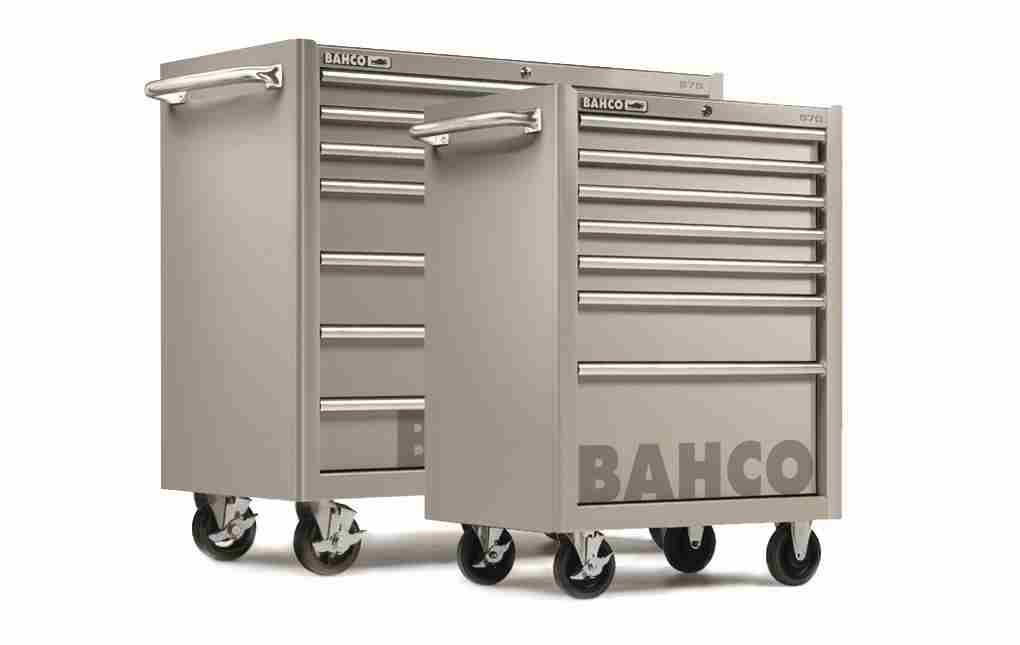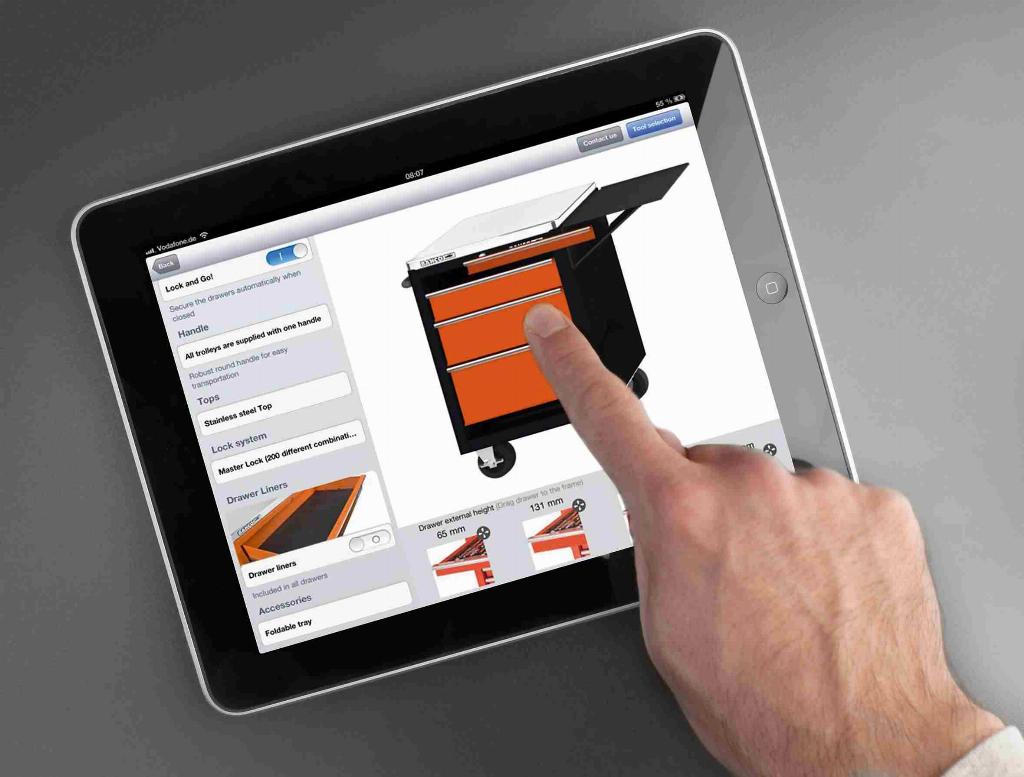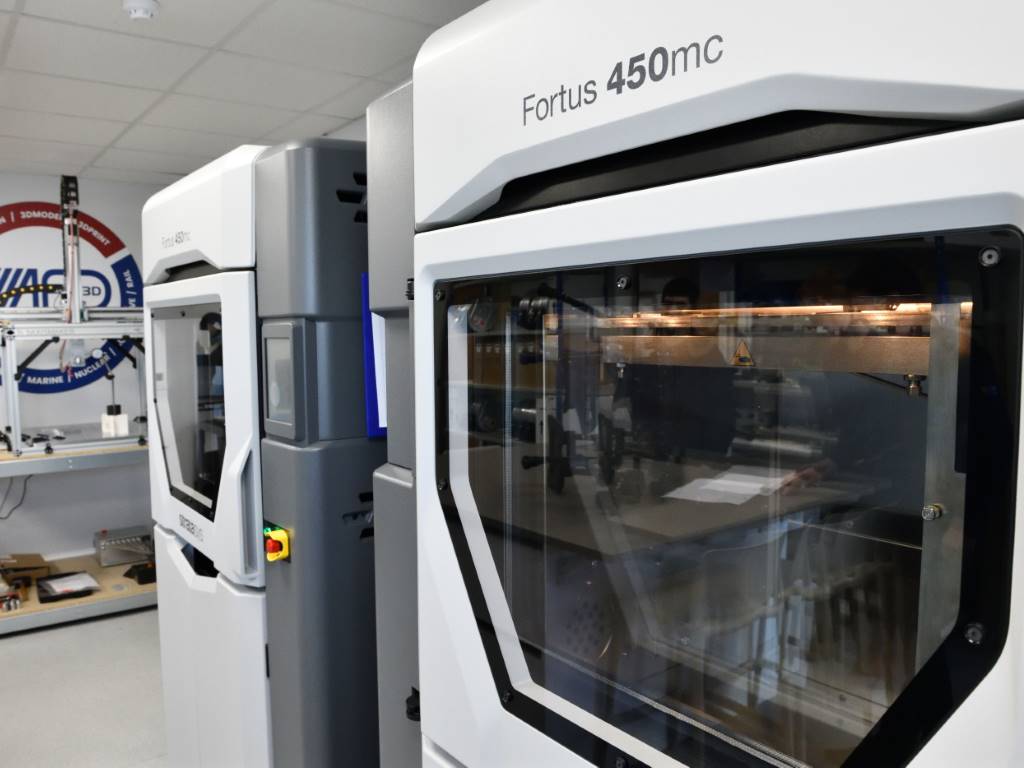FOD: a real and present danger

Aerospace Manufacturing hears how Bahco’s tool management solutions form part of a wider discipline in which the management of hand tool use and storage contributes to a determined bid to avoid FOD and the potential damage it can cause.
No matter how diligently the disciplines of aircraft manufacturing, assembly or MRO are carried out, there will always remain a threat of foreign object debris (FOD) and its potential for causing damage.
It’s a risk which has to be acknowledged and managed, despite the complexity of tasks to be carried out and the myriad of components, fixings, tools and equipment required to complete them.
Industry experts have calculated that FOD costs the global aerospace industry around £3.5 billion a year but that could be an underestimate when viewed against the potential costs of repairing the damage FOD can cause.
A study by Boeing engineers found that the cost of repairing FOD damage caused to an aircraft engine can easily exceed 20% of the engine’s original cost.
The consequences of the problem should not only be measured in financial terms. Incidents of FOD have led to tragic loss of life, as well as causing expensive downtime and repair costs.
Even in the most efficiently managed engineering hangar FOD can result in an aircraft not being returned to operation on schedule. With some carriers that could lead to flight cancellations, lost bookings and reputational damage. Add the disruption and additional costs caused by aircraft and crews being out of position and the FOD repair bill soars ever higher.
To err is human
In one reported incident a London Heathrow baggage handler left a scanner on top of an engine cowling and withdrew from the ramp, unaware of his mistake. During take-off the scanner was ingested into an engine, causing damage which cost £5 million to repair. The flight crew landed the aircraft safely, though the resulting delay to passengers while a replacement aircraft could be found and positioned must have been considerable.

Are the risks of foreign object debris taken sufficiently seriously in aircraft assembly or MRO locations? Manufacturers and engineering managers will no doubt insist that they are.
However, some time-served engineers, speaking with the benefit of years of experience, do express concerns that some young people coming into the industry, with the ink on their degree scrolls barely dry, are not as aware of the FOD threat as they should be.
Despite advances in technology, many engineering workshops still use shadow boards to hang tools. Relatively cheap and cheerful, they give engineers an at-a-glance view of what tools are currently in use and will need returning.
But in today’s high-tech assembly plants and MRO centres there are numerous tools and pieces of equipment, which are not capable of being hung on a shadow board. Also, would you want to hang an electronic torque measurement wrench, perhaps costing more than £2,000, on a shadow board? And where do you put all the sockets, bits, nuts, bolts and other attachments and accessories vital to doing the job?
According to Bahco, whose specialist tools are in widespread use within the air transport industry, one of the best safeguards against FOD is to use trolleys with profiled drawers, where the shape of each tool or tool attachment has been cut into lubricant resistant foam.
Bahco designers and production engineers worked with aerospace companies to develop their latest tool management system, which improves safety and efficiency while helping to avoid foreign object debris and potential damage. The resulting ergonomic tool management system brings order to any aerospace manufacturing or MRO workplace.
Clearly displaying every tool or group of tools in the spacious, colour-coded drawers of the system’s secure storage trolleys enables engineers to find the tool they need quickly and easily. A ‘push’ device enables easy removal from the drawer inlays.
Configurate to innovate

Using Bahco’s ‘Configurator’ software enables customers to choose the size and colour of trolley they prefer, as well as the number of drawers and inlay format. Colour coding in each drawer clearly shows where a tool has been removed, helping to reduce the risk of FOD.
Bahco doesn’t decide how many drawers a trolley should have installed, nor how each drawer is profiled. It considers its customers are the better judge of what tools and accessories will be needed.
The latest additions to the range are tool management and storage trolleys manufactured entirely in stainless steel, with drawers lined with specialist material and profiled to hold stainless steel tools and attachments, increasingly the tools of choice within tightly controlled workplace environments.
“FOD will always be a real and present danger,” says Alan Rankin, who leads Bahco’s industrial tools team in the UK and Ireland. “We use the term ‘tool management’ to make the point that trolleys used in aircraft assembly plants or engineering hangars are not only for storing tools. They are part of a wider discipline in which the management of hand tool use and storage contributes to a determined bid to avoid FOD and the potential damage it can cause.
“We take pride in knowing that our products are contributing to the safety of tool users and helping to achieve high levels of flight safety. If the colour coding of a Bahco tool management drawer enables engineers to avert the threat of FOD, by noticing that a tool is missing, then we are adding value to their work.”












